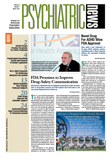The Substance Abuse and Mental Health Services Administration (SAMHSA) debuted its new National Registry of Evidence-Based Programs and Practices (NREPP) last month, a move the federal agency hopes will greatly expand its efforts to help local organizations make informed decisions about evidence-based interventions for the prevention and treatment of many mental health and substance use disorders.
NREPP is a searchable database with information on the science underlying and the practicality of using numerous mental health care interventions. The database's target audience, including community organizations and state and local officials, can perform custom searches to identify specific interventions based on the organization's desired outcomes, target populations, or service settings.
“The new NREPP is a major advancement in SAMHSA's efforts to translate substance abuse and mental health research into practice,” said SAMHSA Administrator Terry Cline, Ph.D. “As more interventions become available, NREPP will accelerate the adoption of effective, evidence-based services to prevent and treat mental health and substance use disorders in community-based settings, achieving the goal of SAMHSA's Science to Service Initiative.”
Originally created in t he 1990s, NREPP has been almost entirely redesigned, based on extensive input from scientific communities, mental health clinicians, expert panels, and the public.
These are among the key features of the new NREPP system:
•
Details on each intervention including a brief descriptive summary, the types of outcomes achieved, the costs of implementing the intervention, and contact information for the intervention's developers.
•
Two independent expert ratings for each intervention, with the first assessing the quality of research supporting specific intervention outcomes, and the second assessing the availability of implementation and training materials for those adopting the intervention in routine clinical settings.
To have an intervention listed in NREPP, the intervention's submits required information about the intervention for expert review. Experts then rate the intervention on the quality of research supporting intervention outcomes and the availability of implementation resources to translate the scientific findings into practice. All NREPP reviewers are recruited, selected, and approved by SAMHSA, based on their length of experience and areas of expertise.
NREPP initially offers information on 25 interventions that have been examined and rated by the expert panelists. Examples of listed interventions include psychotherapeutic techniques useful for couples affected by alcoholism or drug abuse; cognitive-behavioral therapy programs for adolescents with depression; social skills training; dialectical-behavior therapy; and a number of targeted intervention programs, such as SMARTeam (Students Managing Anger and Resolution Together), a computer-based violence-prevention intervention designed for sixth through ninth graders. With more than 200 additional interventions under review, NREPP is targeted to add five to 10 interventions each month.
SAMHSA said in a press release that NREPP was designed “to support SAMHSA's Science to Service Initiative, which promotes greater adoption in routine clinical and community-based settings of those services that science has demonstrated to be effective” in the treatment and prevention of mental illness, including substance use disorders. The project has been a collaborative effort between SAMHSA and the national institutes that study drug abuse, alcohol abuse and alcoholism, and mental health.
More information about NREPP is posted at<www.nrepp.samhsa.gov> or available by phone at (866) 436-7377. ▪
